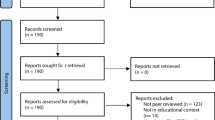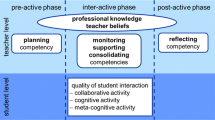Abstract
I argue for a view of critical thinking and learning as a fallibilistic epistemic process of inquiry and evaluation, which is grounded in human fallibility. I show how this plausible view is different from other views, in that it is predicated not only on individual thinking alone but also on group thinking as it affects the individual in the context of a group discussion. The individualistic rational view of critical thinking only specifies the process or method that one may individually use to evaluate beliefs or the evidence that one brings to bear on one's doxastic attitude or judgment. This view does not specify the nature and scope of evidence that one may need to evaluate. I argue that evaluating a belief in the context of having a substantial amount of available evidence in a social group is important for determining whether one thinks critically. There is epistemic advantage in evaluating a broad scope of available evidence in a group discussion, which does not exist otherwise. I assume that group discussion is a pedagogical tool, which under the right social conditions, is likely to bring about learning and the acquisition of critical thinking abilities. The right social conditions for group discussion can optimize reasonableness by a process which involves cognitive division of labor and epistemic prudence. An individual can evaluate on his or her own only a limited amount of evidence; sometimes we may need to rely on the evidence that others have already evaluated which they may reasonably accept, given their cognitive comparative advantage. I distinguish among three plausible learning outcomes of the process of critical thinking, which indicate cognitive division of labor and comparative epistemic advantage in a group discussion.
Similar content being viewed by others
REFERENCES
Annis, D. (1978). A contextual theory of epistemic justification. American Philosophical Quarterly, 15, 213–219.
Annis, D. (1982). A contextual and cultural component of epistemic justification — A reply. Philosophia, 12, 51–55.
Bridges, D. (1979). Education, democracy and discussion. Windsor, UK: NFER.
Burbules, N. (1991). Rationality and reasonableness: A discussion of Harvey Siegel's Relativism refuted and educating reason. Educational Theory, 41(2), 235–52.
Cohen, S. (1987). Knowledge, context, social standards. Synthese, 72, 3–26.
Dretske, F. (1981). The pragmatic dimension of knowledge. Philosophical Studies, 40, 363–78.
Fuller, S. (1988). Social epistemology. Bloomington: Indiana University Press.
Gettier, E. (1963). Is justified true belief knowledge? Analysis, 20, 121–123.
Goldman, A.I. (1976). Discrimination and perceptual knowledge. Journal of Philosophy, 73, 771–791.
Goldman, A.I. (1986). Epistemology and cognition. Cambridge, MA: Harvard University Press.
Hardwig, J. (1985). Epistemic dependence. Journal of Philosophy, 82, 335–349.
Harman, G. (1973). Thought. Princeton, NJ: Princeton University Press.
Harman, G. (1980). Reasoning and evidence one does not possess. In P. French, T. Uehling, & H. Wettstein (Eds.), Midwest studies in philosophy (pp. 163–182). Minneapolis: University of Minnesota Press.
Hill, W.F. (1979). Learning through discussion. Beverly Hills, CA: Sage Publishers.
Kant, I. (1951). Critique of judgment (J.H. Bernard, Trans.). New York: Harner.
Klein, P. (1971). A proposed definition of propositional knowledge. Journal of Philosophy, 68, 471–482.
Kornblith, H. (Ed.). (1987). Naturalizing epistemology. Cambridge, MA: The MIT Press.
Lehrer, K. & Paxson, T. (1969). Knowledge: Undefeated justified true belief. Journal of Philosophy, 66, 225–237.
McPeck, J. (1981). Critical thinking and education. New York: St. Martins Press.
Morgan, W.R., Jr. (1995). ‘Critical Thinking’ — What does that mean? Journal of College Science Teaching, March/April, 336–340.
Paul, R.W. (1982). Teaching critical thinking in the 'strong’ sense: A focus on self-deception, world views, and a dialectical mode of analysis. Informal Logic Newsletter, 4(2), 2–7.
Pollock, J. (1974). Knowledge and justification. Princeton, NJ: Princeton University Press.
Popper, K. (1985). Truth and approximation to truth. In D. Miller (Ed.), Popper selections (pp. 181–198). Princeton, NJ: Princeton University Press.
Siegel, H. (1988). Educating reason. New York: Routledge.
Sosa, E. (1974). How do you know? American Philosophical Quarterly, 11(2), 113–122.
Author information
Authors and Affiliations
Rights and permissions
About this article
Cite this article
Ikuenobe, P. Epistemic Foundation for Teaching Critical Thinking in Group Discussion. Interchange 33, 371–393 (2002). https://doi.org/10.1023/A:1021564120979
Issue Date:
DOI: https://doi.org/10.1023/A:1021564120979




